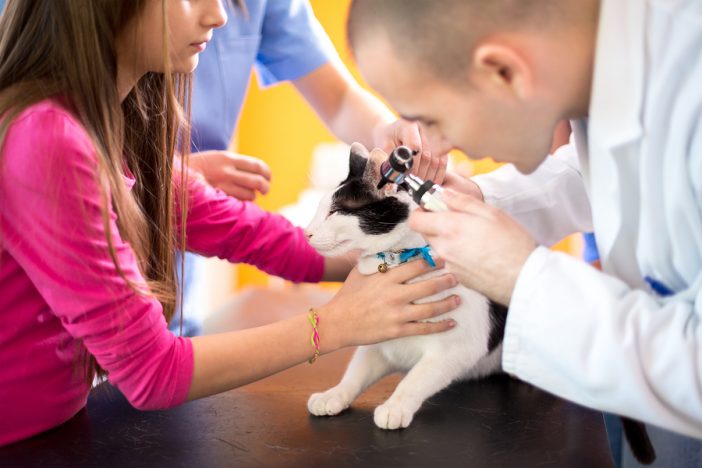
In February of 2014, Dr. Shirley Koshi committed suicide. I didn’t know her, but she was one of us. I investigated every story written about the situation for the months following her death. I also started looking at the Facebook sites created by “animal activists” that cyber-bullied Dr. Koshi and her practice until she felt like she had no other options. I was horrified to read the stories they put up regarding how and why they were suing their veterinarians.
Most of the stories were very one-sided, but veterinarians were still losing cases. After spending months reading these stories I finally decided to find the good in those awful situations. The majority of those veterinarians who lost their board complaints did so because of poor record-keeping and communication. They weren’t practicing bad medicine, but they got caught in the same trap that a lot of veterinarians do when it comes to board complaints. I didn’t want to become a paranoid veterinarian, but I did want to use that feeling of being under investigation to better myself. These guidelines may seem like common sense, but many veterinarians are still breaking them daily.
1 – Write up records- even if every aspect of the animal was normal, you need to document it.
A thorough veterinary record should not just state: 1-year rabies without any exam findings. They make exam stickers for those who would rather check off “normal” vs. “abnormal.” With digital records, it is even easier to create a complete chart.
2 – Offer multiple treatment plans and document if those plans were rejected.
Don’t be the veterinarian that just offers plan C right off the bat. Give owners options, and document if they reject them. Documentation won’t bite you in the butt later on, but owners complaining that you never offered something will.
3 – Write up plans for when your plans don’t work.
Dermatology cases are ones to keep a close eye on. I always write up when I want the owner to call with an update and thoroughly document my alternative plan if the current one isn’t helping. It also helps if I’m not there for the recheck and another veterinarian is taking over the case.

4 – Write up phone conversations.
Make sure your technicians and receptionists are too. They are a reflection of us and our license is on the line if they do not document properly.
5 – Send take-home instructions with the owner.
These help the owner remember what you discussed in the exam room and allows for clarification of said treatment plans.
6- Know your limitations- offer referrals if your treatments aren’t working.
Don’t be stubborn and continue to treat if the patient is getting worse. Specialists are around for a reason. Use them.
7 – Use the other veterinarians in your practice.
Even if it is to confirm what you are suspecting, having another veterinarian to back up your diagnosis can be super helpful- again, document it.

8 – Be honest with your clients- tell them if you are a 24-hour hospital versus just on-call.
Tell them if their pet will be monitored overnight or not. Tell them if this is the first time doing a particular procedure. Most clients appreciate honesty and it can prevent a lot of anger later on.
9 – Go through medical forms, surgical forms, and consent forms- make sure owners are reading them and understand them.
I’ve had some owners complain that I didn’t catch their dogs’ kidney failure 3 months prior when it was in for a lump removal; only to find out they declined blood work before surgery.
10 – Stay up to date on your medical treatments.
This is a blanket statement since medicine is forever changing. We might hate steroids this month but next month they will be all the rage. But honestly, clients are doing a ton of research these days and will bring up newer procedures that maybe you haven’t bothered to keep up on. Same with vaccines- if you haven’t switched over to three-year protocols (depending on state law) and don’t offer Purevax feline vaccines, you have a target on your back already by most anti-veterinarian websites.
As frustrating as some stories are, there is still a lesson to be learned. We can always do better. Don’t fall into the trap that most veterinarians do when a board complaint pops up. We should never fear a board complaint if our medicine is high quality and we document everything well.
The views and opinions expressed in this article are those of the author and do not necessarily reflect the position of the DrAndyRoark.com editorial team.